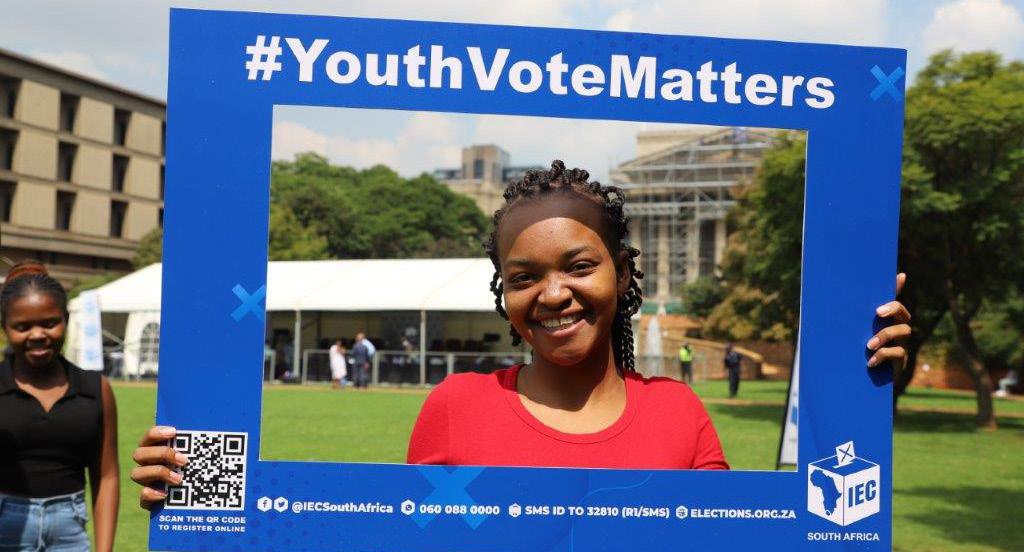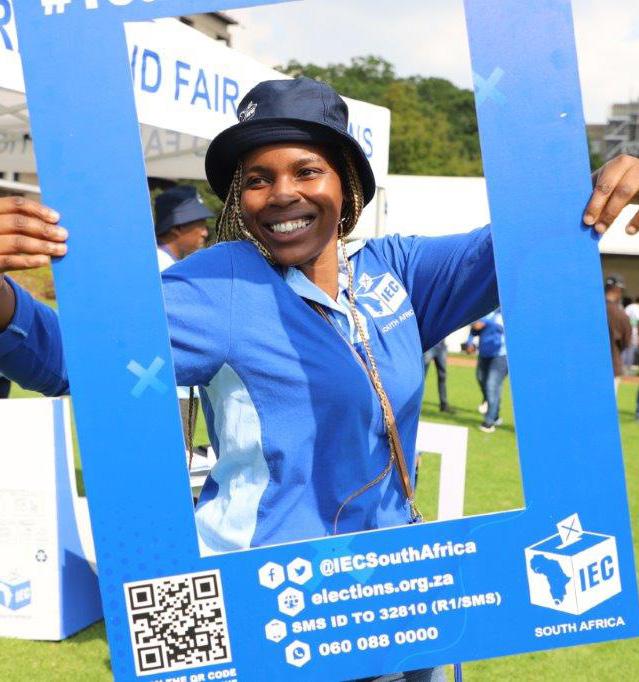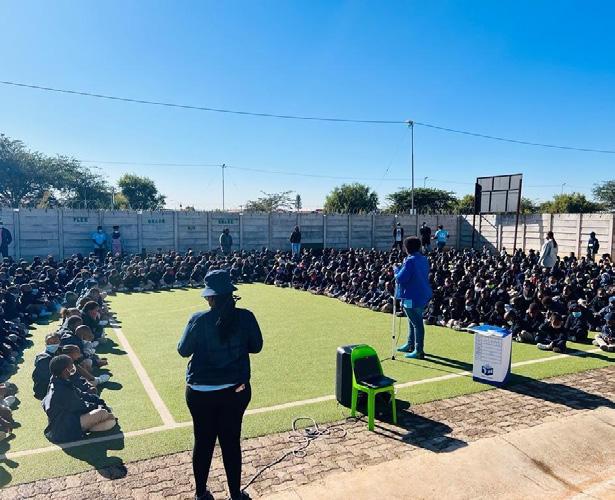
6 minute read
Electoral Commission: SA'S Youth Vote Matters
Ahead of the 2024 general elections, and following the low voter turnout in the 2021 municipal elections, the Electoral Commission has prioritised democracy education for the youth of South Africa. It is midway through its expanded democracy education programme, aimed not just at school learners, but also the youth at tertiary educational institutions, and those outside of formal educational and workplace structures.
In South Africa, the youth played a historically important role in achieving electoral democracy. They were active citizens and made an immense contribution towards the liberation of this country. Many of them even lost their lives in the pursuit of freedom and the democracy that we all enjoy today.
Advertisement
However, young people in the post-apartheid era form part of the phenomenon of electoral abstention, which is becoming prevalent in many countries the world over. For example, voter turnout during the 2021 municipal elections was a mere 46%, which was the lowest in the history of democratic South Africa. During the 2021 municipal elections, nearly 1,8 million eligible 18-19 year-olds did not register to vote. This translates into 1,8 million lost potential votes in these elections, because one cannot vote if one is not registered to vote, and consequently not on the voter's roll.
On another front, statistics report that those within the age group of 15-34 years constitute more than a third (about 35%) of the estimated population of about 60 million people in South Africa. Interestingly, during the same 2021 municipal elections, out of the 175 206 voters on the roll, 18-19 year-olds registered to vote, a total of 124 905 of them actually voted, translating into 71% voter turnout amongst this age group. This was far above the national average voter turnout of 46%. Therefore, it is evident that, once registered, young voters do participate.
It was against this background that the Electoral Commission launched a voter education and registration campaign within the education sector.

The campaign aims to cultivate and instil a culture of electoral democracy and active citizenry among students in both public and private institutions of learning, to enhance voter registration and voter participation in student representative council elections and in national, provincial and local government elections.
“The Electoral Commission is of the opinion that engaging students’ views about democracy and elections through voter educationbased dialogues will enhance their voter participation,” says Mawethu Mosery, Deputy Chief Electoral Officer: Outreach at the Electoral Commission. “Our goal is to create a new generation empowered with the knowledge, skills and attitudes necessary for active and responsible citizenry, proud to register to vote, participate in elections and begin to shape their own future,” he adds.
Since the national launch of this campaign at the University of the Witwatersrand on 22 March 2022, over 350 public and private institutions of higher learning have been visited by the Electoral Commission across the republic. The focus week for this campaign was 22-25 March 2022 to coincide with Human Rights Day commemorations.
As at 30 April 2022, some 4 000 potential young voters were registered to vote during this campaign. It is important to acknowledge that to instil a culture requires determination, commitment and consistency and therefore, this campaign will run until the end of September 2022 when the Electoral Commission will exit the space, so to speak, so that students can prepare for their year-end exams.
This campaign has been promoted across a broad range of media channels, including 25 campusbased radio stations, the on-campus communication and entertainment channels on over 100 HD screens at six universities, and digital media platforms, such as Facebook, Twitter ads, TikTok. Publisher websites such as News24/Network24, Google, YouTube, and mobile operators such as Vodacom’s Please Call Me adverts, and SABC Digital – 16 radio stations social media platforms, have also been utilised for campaign promotions.
All of these media platforms are key mediums for universities and colleges to reach out to their campus communities, and interact with their students in particlar. During various campus activations, students were encouraged to use the Electoral Commission’s online voter registration platform to register as voters.
Never too young to learn about democracy
The Electoral Commission then proceeded to launch its youth democracy programme in schools on 22 April 2022 in collaboration with the Department of Basic Education (DBE), known as Schools Democracy Week, at Rekgaratlhile High School, Kuruman, GaSegonyana Local Municipality, in John Taolo Gaetsewe District, Northern Cape.
Schools Democracy Week is an annual civic and democracy education (CDE) programme for learners in basic education, which normally spans the week in which Freedom Day is commemorated on 27 April. During the week, IEC officials visited various schools to promote CDE and register eligible learners on the voters’ roll.
In her address to the national launch, Deputy Minister of Basic Education, Dr Makgabo Reginah Mhaule, said the Schools Democracy Week was a launch pad to a broader continuous Democracy Education Programme, which is offered at schools in Human Rights and Values as part of Life Orientation to reinforce the curriculum offering on human rights, democracy and civic education. In April, in line with the aims of this programme, the Electoral Commission visited some 2 000 schools countrywide to provide CDE to the learners and register them to vote to facilitate their constitutional right to vote during elections.

It’s worth noting that the Schools Democracy Week Programme was first held in 2013 following the signing of a Memorandum of Agreement between the Electoral Commission and the DBE to enhance youth participation in electoral democracy.
During youth month in June, the Electoral Commission will target the so-called ‘unorganised’ youth to ensure that they are also receive democracy education and an opportunity to register to vote so that they can participate in our electoral democracy. For the purpose of this programme, the unorganised youth are defined as youth out of school found in our communities and without employment. The Electoral Commission envisages working with civil society organisations, among other stakeholders, to implement the June Youth Programme. Organisations interested in offering their assistance should please contact Mmakgabo Jerry Ramatlhodi of the Electoral Commission’s Outreach unit at ramatlhodim@elections.org.za or call him on Tel: 012 622 5445

Eligible voters who wish to register to vote or to update their address on the voters’ roll can do so online. Just go to https://registertovote.elections. org.za – the voter portal is available 24/7, and registration is safe, quick and easy!










